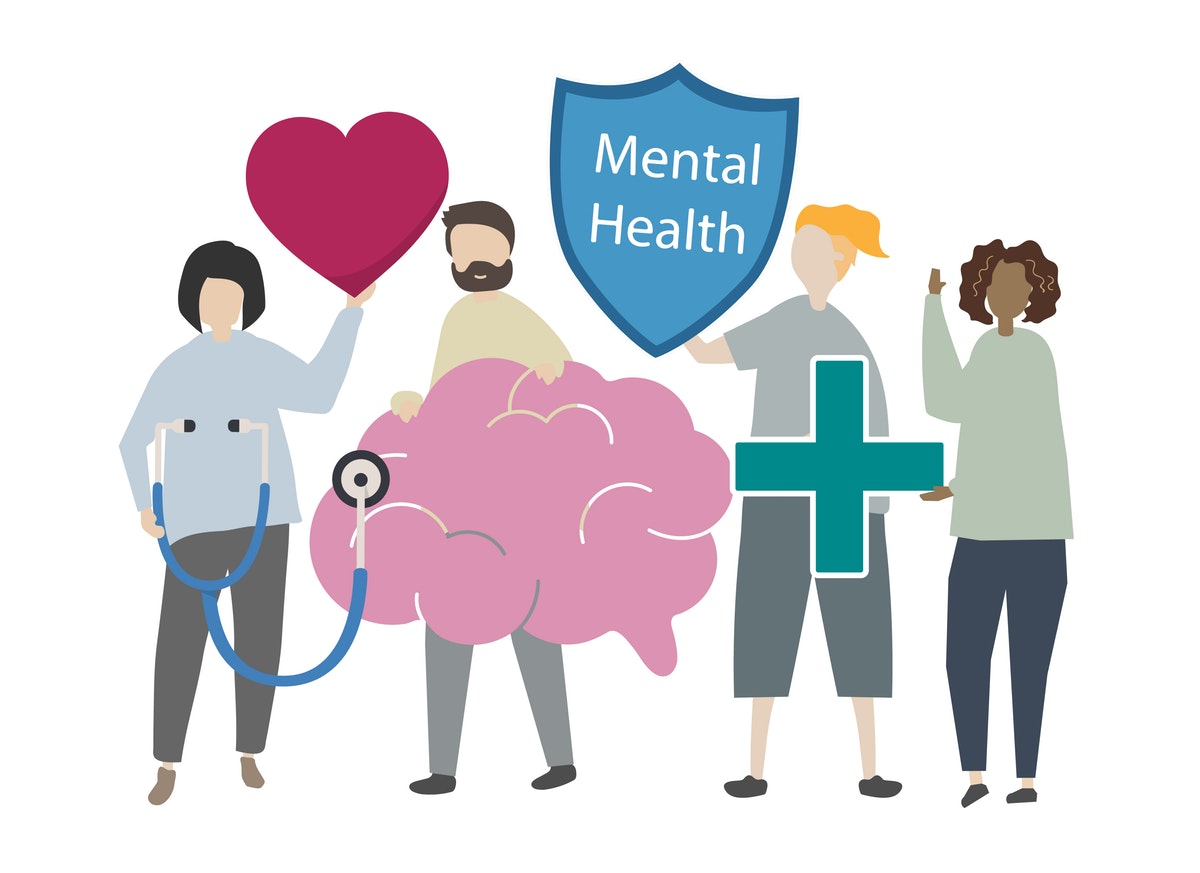how to become a licensed therapist
By: Mary Elizabeth Dean
Updated March 18, 2021
Medically Reviewed By: Aaron Horn
If you have a passion for helping people, therapy can be one of the most rewarding career paths to take. It will take time and planning, but most people searching for a career in the helping fields can fit into one of these types of mental health jobs. This article will show you what to expect when pursuing a career as a therapist.

Source: rawpixel.com
Educational Requirements
To receive your credentials to become a therapist, you will have to undergo several years of education. This section will cover the basics of what you should anticipate before becoming a licensed therapist in your state.
Pre-Higher Education
Many people do not have their career paths planned out until their in college. However, if you already know that you are interested in psychology and mental health, you can start preparing early to come in the future.
Most high schools across the United States offer psychology as an elective course. If this is not your school's case, you can opt for reading textbooks or articles on the subject or watch videos. Many resources online are fun and engaging but are effective simultaneously, which makes learning much easier.
Undergraduate Studies
During your undergrad years, you can participate in various degree programs to lead to your desired career in therapy. Some colleges and universities offer programs specifically related to mental health and therapy; however, most of the time, students who become future therapists will get their bachelor's degrees in:
- Psychology
- Social Work
- Child Development
- Neuroscience
These are some of the most popular majors for getting into graduate school to study therapy further. According to the National Center of Education Statistics, out of the 1,895,000 bachelor's degrees awarded during 2014 to 2015 academic year, 118,000 were in psychology[1]. Because of their popularity, subjects related to psychology are also frequently offered as online courses, making pursuing a career in therapy more flexible and convenient.
Keep in mind, though, having a psychology degree or one of the other ones listed here is not required to gain admission into a good graduate school, but it can certainly make it easier. Having a background in psychology and related subjects will also make you more prepared for the next chapter of your education. It can help you avoid having to take remedial classes to catch up with graduate course material.

Source: rawpixel.com
Graduate School
If you have not yet decided on a specific type of therapy, graduate school will be the time you will need to make that decision. Still, hopefully, you have some understanding in mind while you were applying to various graduate programs.
There are many different types of therapy that a person can choose to specialize in, such as, but not limited to:
- Psychotherapy (Cognitive Behavioral Therapy (CBT), Applied Behavioral Analysis (ABA), etc.)
- Marriage and Family Therapy
- Social Work
- Recreational Therapy
Depending on your undergraduate background, you can be prepared for the niche you decide to settle in. For example, someone who majored in child development for their bachelor's degree will likely do well with helping kids who struggle with autism spectrum disorder (ASD), behavioral disorders, or maladaptive behaviors in general.
In addition to the courses you will take, you will also work in the field directly. Most schools offer some supervised clinical work or other internships and externships. While this might seem a lot to juggle all at once, many students enjoy this because it gives them hands-on experience to succeed after they graduate.
How long it takes to complete a program can vary. A Master's degree is a prerequisite to becoming a licensed therapist, and it can take two or three years to complete. On the other hand, Ph.D. coursework often takes at least five years. A Ph.D. is not mandatory to be a therapist. Still, because you will be required to write a dissertation and present it, a doctorate program is excellent for those who want to perform research and further understand the field.
Graduate school will be the most challenging part of your education. According to an article by the American Psychological Association, you will need to be curious, conscientious, resilient, and confident to succeed because these are predictors of grad school success. You will also not only need to be intelligent in the general sense (if you have made it this far, you already have this covered), but you will need to be emotionally intelligent as well, meaning you can "discern others' feelings through subtle cues" [2]
With this in mind and the persistence and drive to succeed, you will receive your degree and be ready for the last steps to becoming a therapist.

Source: rawpixel.com
Licensing And Renewal
Finally, after several years of education, and once you graduate with your Master's degree or Ph.D., you can now apply to become a licensed therapist in your state or country. Requirements can vary depending on your region and which type of therapy you plan to practice in, and you can find this information on its respective licensing board.
For example, a person who is either looking to become a licensed marriage and family therapy (LFMT), a licensed clinical social worker (LCSW), or a licensed professional clinical counselor (LPCC) in the state of California will need to register with the California Board of Behavioral Sciences. [3] This is just an example to give you an idea of what to look for, and your state should have a very similar website and have the same information.
Regardless of where you apply, though, you should expect to take more than one examination and pass them to demonstrate that you are trained and ready to practice therapy in your area. You will also most likely need to pay a fee.
Once you have succeeded with all of these steps… Congratulations! You will be a licensed therapist and can help people immensely with your services.
However, after a few years or so, you will need to renew this license to keep being a therapist. This will also mean that you should stay current with any new findings and trends in your area of practice. To do this, you should keep taking classes and reading articles to stay current on your education. This will not only inform you of any new research but will provide you with the most up-to-date information and treatment practices for your patients.
Conclusion

Source: rawpixel.com
Becoming a therapist is a long journey, but once you have completed everything you set out to do, you will be a part of one of the most rewarding career paths out there. Not only will you be doing what you planned and studied for, but you will be helping others, and this is what makes therapy fulfilling for millions of practitioners.
Therapy can take on different forms, and people can choose to do one-on-one or group sessions. Thankfully, in today's modern and digital age, online services are also an option, such as the counseling and therapy provided by ReGain.us.
Nonetheless, learning does not stop once you earn your degrees and certification, and as mentioned before, it is advised that you stay up-to-date with your area of study. In addition to the therapy services, Regain also offers informative articles like this to help educate the public about psychology and mental health topics that can help people of all educational levels.
Hopefully, this article has given you insight into what it takes to be a therapist and has encouraged you to choose this path for those curious about starting a career in therapy.
References
National Center For Educational Statistics. (n.d.). Fast Facts: Most Popular Majors. Retrieved July 22, 2019, from https://nces.ed.gov/fastfacts/display.asp?id=37
Swaminathan, N. (2012, September). What predicts grad school success? American Psychological Association / gradPSYCH Magazine. Retrieved July 23, 2019, from https://www.apa.org/gradpsych/2012/09/cover-success
California Board of Behavioral Sciences. (2019). General Info & Requirements. Retrieved July 23, 2019, from https://www.bbs.ca.gov/consumers/info.html
Frequently Asked Questions (FAQs) What qualifications do you need to be a therapist? To become a therapist, you must receive your bachelor's degree in psychology, social work, or a related field. This will give you exposure and basic working knowledge of the field. Then, you will need to be accepted into a graduate program, which is where you will receive the specialized training needed to become a licensed therapist in the niche of your choosing. Some of the programs you can choose from include child psychology, social work, marriage, family therapy, and counseling. You can also choose the psychology program if your goal is to go on to doctoral work and become a licensed psychologist. As part of your master's program, you will likely be required to complete a set number of supervised clinical hours or be assigned to an organization to fulfill those clinical hours. A doctoral degree isn't necessarily required to practice as a therapist but is required if you wish to become a licensed psychologist. While in post-graduate school, you will receive an education tailored to the specific field of psychology you choose to get into and will also need to write a dissertation, which you will have to defend. Can you be a therapist without a degree? To become a licensed therapist, you need to obtain your bachelor's degree and master's degree in psychology or a related field at minimum. You will also need to receive your license from the state in which you wish to practice. Every state's licensing laws are different, but they generally will not grant you a license without a master's degree in psychology or a related field. You will also have to take a test before the state grants you your license. Is it hard to get a job as a therapist? It can be hard to get a job as a therapist if you do not have the education requirements. Obtaining your master's degree is strongly preferred and essential to becoming a licensed therapist and providing better career opportunities. Going on to receive your Ph.D. or Psy.D. can open the door for the best opportunities in the field. Another potential obstacle to getting a job as a therapist depends on the specific niche of therapy you are in, such as counseling, family therapy, social work, and the opportunities available near you. Is being a therapist a good job? Being a therapist is a highly rewarding job. You get to help clients improve their lives, and this can be deeply satisfying. However, being a therapist can also be stressful and trying at times. You must help clients overcome the conflicts and obstacles they face in their mental health, which can be draining. Is it too late to become a therapist? It's not necessarily too late for you to become a therapist. If you have the time, money, passion, and mental capability to pursue the necessary education and training, that's all you need to get started. You will need anywhere from a 6-10-year commitment to education and training.
This website is owned and operated by BetterHelp, who receives all fees associated with the platform.
how to become a licensed therapist
Source: https://www.regain.us/advice/how-to/considering-a-career-in-mental-health-how-to-be-a-therapist/
Posted by: davisthaverom67.blogspot.com

0 Response to "how to become a licensed therapist"
Post a Comment